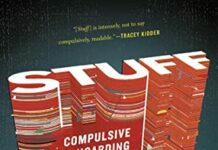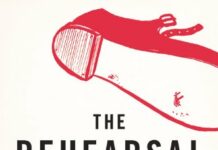
Ebook Info
- Published: 2012
- Number of pages: 336 pages
- Format: Epub
- File Size: 0.44 MB
- Authors: A.S. King
Description
Vera’s spent her whole life secretly in love with her best friend, Charlie Kahn. And over the years she’s kept a lot of his secrets. Even after he betrayed her. Even after he ruined everything. So when Charlie dies in dark circumstances, Vera knows a lot more than anyone—the kids at school, his family, even the police. But will she emerge to clear his name? Does she even want to? Edgy and gripping, Please Ignore Vera Dietz is an unforgettable novel: smart, funny, dramatic, and always surprising.
User’s Reviews
Editorial Reviews: Review Kirkus Reviews, starred review, September 15, 2010:”A harrowing but ultimately redemptive tale of adolescent angst gone awry. Vera and Charlie are lifelong buddies whose relationship is sundered by high school and hormones; by the start of their senior year, the once-inseparable pair is estranged. In the aftermath of Charlie’s sudden death, Vera is set adrift by grief, guilt and the uncomfortable realization that the people closest to her are still, in crucial ways, strangers. As with King’s first novel, The Dust of 100 Dogs (2009), this is chilling and challenging stuff, but her prose here is richly detailed and wryly observant. The story unfolds through authentic dialogue and a nonlinear narrative that shifts fluidly among Vera’s present perspective, flashbacks that illuminate the tragedies she’s endured, brief and often humorous interpolations from “the dead kid,” Vera’s father and even the hilltop pagoda that overlooks their dead-end Pennsylvania town. The author depicts the journey to overcome a legacy of poverty, violence, addiction and ignorance as an arduous one, but Vera’s path glimmers with grace and hope.” (Fiction. 14 & up)Publishers Weekly, starred review, October 11, 2010:”Beginning with the funeral of Charlie Kahn, high school senior Vera’s neighbor and former best friend, this chilling and darkly comedic novel offers a gradual unfolding of secrets about the troubled teenagers, their families, and their town. Though Charlie’s death hangs heavily over Vera, she has the road ahead mapped out: pay her way through community college with her job delivering pizza while living “cheap” in her father’s house. But first she has to face her fractured relationship with her father, a recovering alcoholic who worries about her drinking; the absence of her mother, who left six years earlier; and the knowledge that she could clear Charlie’s suspected guilt in a crime. Vera is the primary narrator, though her father, Charlie (posthumously), and even the town’s landmark pagoda contribute interludes as King (The Dust of 100 Dogs) shows how shame and silence can have risky–sometimes deadly–consequences. The book is deeply suspenseful and profoundly human as Vera, haunted by memories of Charlie and how their friendship disintegrated, struggles to find the courage to combat destructive forces, save herself, and bring justice to light.” Ages 13–up. (Oct.)Booklist, starred review, November 15, 2010:”High-school senior Vera never expects her ex-best friend, Charlie, to haunt her after he dies, begging her to clear his name of a horrible accusation surrounding his death. But does Vera want to help him after what he did to her? Charlie’s risky, compulsive behavior and brand-new bad-news pals proved to be his undoing, while Vera’s mantra was always “Please Ignore Vera Dietz,” as she strives, with Charlie’s help, to keep a secret about her family private. But when Charlie betrays her, it is impossible to fend off her classmates’ cruel attacks or isolate herself any longer. Vera’s struggle to put Charlie and his besmirched name behind her are at the crux of this witty, thought-provoking novel, but nothing compares to the gorgeous unfurling of Vera’s relationship with her father. Chapters titled “A Brief Word from Ken Dietz (Vera’s Dad)” are surprising, heartfelt, and tragic; it’s through Ken that readers see how quickly alcohol and compromised decision-making are destroying Vera’s carefully constructed existence. Father and daughter wade gingerly through long-concealed emotions about Vera’s mother’s leaving the family, which proves to be the most powerful redemption story of the many found in King’s arresting tale. Watching characters turn into the people they’ve long fought to avoid becoming is painful, but seeing them rise above it, reflect, and move on makes this title a worthy addition to any YA collection.”The Bulletin of the Center for Childrens Books, review, November 2010:”The death of a best friend is hard enough, but for high-school senior Vera Dietz, her reaction to the death of Charlie Kahn is complicated by the fact that in the last few months he’d dumped her for the druggie pack at school, especially tough-girl Jenny. Flashbacks and compact commentary from Charlie himself, from Vera’s straitlaced dad, and from an omniscient local landmark interweave with Vera’s current narration, painting the picture of Vera and Charlie’s close friendship and its recent souring and revealing that Vera is the guilty and troubled possessor of many secrets about her late friend. King offers a perceptive exploration of a particular kind of friendship, one where one friend is undergoing agonies beyond the power of the other to help. Vera’s own troubles—her abandonment by her mother, the strictness and emotional evasion of her recovering-alcoholic father—get sympathetic treatment, but it’s clear that Vera is loved and cared for in a way that Charlie, stuck in a poisonous, abusive home, simply wasn’t. Yet it’s Vera’s life even more than Charlie’s that’s under scrutiny here, especially since Vera still has the possibility of making changes, both in her dealing with Charlie’s memory and in her ongoing relationships. The writing is emotional yet unfussy, and Vera’s tendency to see and perceive Charlie in every place and every thing is both effective and affecting. It’s not uncommon for the dysfunction in one friend’s life to start sowing seeds of doom for a friendship, and Vera’s poignant take on her double loss will resonate with many readers.”VOYA, review, November 2010:”It is hard to describe how deeply affecting this story is. Vera and Charlie are both the victims of extremely bad parenting, but that only scratches the surface of the novel. The writing is phenomenal, the characters unforgettable. The narrative weaves through the past and present, mostly from Vera’s viewpoint but with telling asides from other characters. There is so much in here for young people to think about, presented authentically and without filters: drinking and its consequences; the social hierarchy of high school; civic responsibilities; and teens’ decisions to accept or reject what their parents pass down to them. It is a gut-wrenching tale about family, friendship, destiny, the meaning of words, and self-discovery. It will glow in the reader for a long time after the reading, just like the neon red pagoda that watches over Vera and her world.” About the Author A.S. King is the award-winning author of young adult books including Reality Boy, Ask the Passengers, Everybody Sees the Ants, and The Dust of 100 Dogs. She has visited hundreds of schools to talk about empowerment, self-reliance and self-awareness. Find more at www.as-king.com. Excerpt. © Reprinted by permission. All rights reserved. THE FUNERAL The pastor is saying something about how Charlie was a free spirit. He was and he wasn’t. He was free because on the inside he was tied up in knots. He lived hard because inside he was dying. Charlie made inner conflict look delicious. The pastor is saying something about Charlie’s vivacious and intense personality. I picture Charlie inside the white coffin, McDonald’s napkin in one hand, felt-tipped pen in the other, scribbling, “Tell that guy to kiss my white vivacious ass. He nevermet me.” I picture him crumpling the note and eating it. I picture him reaching for his Zippo lighter and setting it alight, right there in the box. I see the congregation, teary-eyed, suddenly distracted by the rising smoke seeping through the seams. Is it okay to hate a dead kid? Even if I loved him once? Even if he was my best friend? Is it okay to hate him for being dead? Dad doesn’t want me to see the burying part, but I make him walk to the cemetery with me, and he holds my hand for the first time since I was twelve. The pastor says something about how we return to the earth the way we came from the earth and I feel thegrass under my feet grab my ankles and pull me down. I picture Charlie in his coffin, nodding, certain that the Great Hunter meant for everything to unfold as it has. I picture him laughing in there as the winch lowers him into the hole. I hear him saying,”Hey, Veer–it’s not every day you get lowered into a hole by a guy with a wart on his nose, right?” I look at the guy manning the winch. I look at the grass gripping my feet. I hear a handful of dirt hit the hollow-sounding coffin, and I bury my face in Dad’sside and cry quietly. I still can’t really believe Charlie is dead. The reception is divided into four factions. First, you have Charlie’s family. Mr. and Mrs. Kahn and their parents (Charlie’s grandparents), and Charlie’s aunts and uncles and seven cousins. Old friends of the family and close neighbors are included here,too, so that’s where Dad and I end up. Dad, still awkward at social events without Mom, asks me forty-seven times between the church and the banquet hall if I’m okay. But really, he’s worse off than I am. Especially when talking to the Kahns. They know we knowtheir secrets because we live next door. And they know we know they know. “I’m so sorry,” Dad says. “Thanks, Ken,” Mrs. Kahn answers. It’s hot outside–first day of September–and Mrs. Kahn is wearing long sleeves. They both look at me and I open my mouth to say something, but nothing comes out. I am so mixed up about what I should be feeling, I throw myself into Mrs. Kahn’s arms and sob for a few seconds. Then I compose myself and wipe my wet cheeks with the backof my hands. Dad gives me a tissue from his blazer pocket. “Sorry,” I say. “It’s fine, Vera. You were his best friend. This must be awful hard on you,” Mrs. Kahn says. She has no idea how hard. I haven’t been Charlie’s best friend since April, when he totally screwed me over and started hanging out full-time with Jenny Flick and the Detentionhead losers. Let me tell you–if you think your best friend dying is a bitch,try your best friend dying after he screws you over. It’s a bitch like no other. To the right of the family corner, there’s the community corner. A mix of neighbors, teachers, and kids that had a study hall or two with him. A few kids from his fifth-grade Little League baseball team. Our childhood babysitter, who Charlie had an endlesscrush on, is here with her new husband. Beyond the community corner is the official-people area. Everyone there is in a black suit of some sort. The pastor is talking with the school principal, Charlie’s family doctor, and two guys I never saw before. After the initial reception stuff is over,one of the pastor’s helpers asks Mrs. Kahn if she needs anything. Mr. Kahn steps in and answers for her, sternly, and the helper then informs people that the buffet is open. It’s a slow process, but eventually, people find their way to the food. “You want anything?” Dad asks. I shake my head. “You sure?” I nod yes. He gets a plate and slops on some salad and cottage cheese. Across the room is the Detentionhead crowd–Charlie’s new best friends. They stay close to the door and go out in groups to smoke. The stoop is littered with butts, even though there’s one of those hourglass-shaped smokeless ashtrays there. For a whilethey were blocking the door, until the banquet hall manager asked them to move. So they did, and now they’re circled around Jenny Flick as if she’s Charlie’s hopeless widow rather than the reason he’s dead. An hour later, Dad and I are driving home and he asks, “Do you know anything about what happened Sunday night?” “Nope.” A lie. I do. “Because if you do, you need to say something.” “Yeah. I would if I did, but I don’t.” A lie. I do. I wouldn’t if I could. I haven’t. I won’t. I can’t yet. I take a shower when I get home because I can’t think of anything else to do. I put on my pajamas, even though it’s only seven-thirty, and I sit down in the den with Dad, who is reading the newspaper. But I can’t sit still, so I walk to the kitchen andslide the glass door open and close it behind me once I’m on the deck. There are a bunch of catbirds in the yard, squawking the way they do at dusk. I look into the woods, toward Charlie’s house, and walk back inside again. “You going to be okay with school tomorrow?” Dad asks. “No,” I say. “But I guess it’s the best thing to do, you know?” “Probably true,” he says. But he wasn’t there last Monday, in the parking lot, when Jenny and the Detentionheads, all dressed in black, gathered around her car and smoked. He wasn’t there when she wailed. She wailed so loud, I hated her more than I alreadyhated her. Charlie’s own mother wasn’t wailing that much. “Yeah. It’s the first week. It’s all review anyway.” “You know, you could pick up a few more hours at work. That would probably keep your mind off things.” I think the number one thing to remember about my dad is that no matter the ailment, he will suggest working as a possible cure. THREE AND A HALF MONTHS LATER– A THURSDAY IN DECEMBER I turned eighteen in October and I went from pizza maker to pizza deliverer. I also went from twenty hours a week to forty, on top of my schoolwork. Though the only classes worth studying for are Modern Social Thought and Vocabulary. MST is easy homework–everyday we discuss a different newspaper article. Vocab is ten words a week (with bonus points for additional words students find in their everyday reading), using each in a sentence. Here’s me using parsimonious in a sentence. My parsimonious father doesn’t understand that a senior in high school shouldn’t have a full-time job. He doesn’t listen when I explain that working as a pizza delivery girl from four until midnight every school night isn’t very good for my grades. Instead,my parsimonious father launches into a ten-minute-long lecture about how working for a living is hard and kids today don’t get it because they’re given allowances they don’t earn. Seemingly, this is character building. Apparently, most kids would be thankful. Allegedly, I’m the only kid in my school who isn’t “spoiled by our culture of entitlement.” This was supposed to keep my mind off Charlie dying–which hasn’t worked so far. It’s only made it worse. The more I work, the more he follows me. The more he follows me, the more he nags me to clear his name. The more he nags me, the more I hate him forleaving me with this mess. Or for leaving me, period. I’m at the traffic light outside school and I slip the red Pagoda Pizza shirt over my head. I don’t care if it messes up my hair, because I need to look a mix of crazy, disheveled, and apathetic to maintain the balancing act of getting good tips and notgetting robbed. I reach under my seat and feel around for the cold glass, and when I find it, I slide it between my legs and twist the metal cap off. Two gulps of vodka later, my eyes are watering and my throat automatically grumbles “Ahhhhh” to get rid ofthe burning. Don’t judge. I’m not getting drunk. I’m coping. I pop three pieces of Winterfresh gum into my mouth, slip the bottle back under my seat, and turn left into the Pagoda Pizza Delivery parking lot. My boss at Pagoda is a really cool biker lady with crooked yellow teeth called Marie. We have two other managers. Nathan (Nate) is a six-foot-five black guy with square 1980s glasses, and Steve is in his forties, drives a Porsche, and lives with his mom.One of the other drivers told me that he’s loaded and he only works here for fun, but I don’t believe what the other drivers say. Most of the time, they’re stoned. They tell me, when we’re mopping the floor or washing the dishes after closing, that when they’rehigh, they can’t look at Marie because her teeth freak them out. Marie is running the store tonight, and when I get in, she smiles at me, like a bagful of broken, sun-aged piano keys, and hands me my change envelope and my Pagoda Phone for the night. Nate is cashing out his day-shift receipts on the computer behindthe stainless-steel toppings island. “Yo, Vera! What’s shakin’?” “Hey, Nate.” “Anyone ever tell you that you look fine in that uniform?” he asks. He asks this at least twice a week. It’s his idea of endearing small talk. “Only you,” I say. “It’s like you were destined to be a pizza delivery technician,” he adds, then slams the cash drawer shut and struts into the back room with me, where he slaps a deposit bag onto the old desk in the office and removes his hokey MC Hammer leather coat fromthe hook on the back of the door. “Destiny’s bullshit,” I answer. I should know. I’ve spent my whole life avoiding mine. YOU’RE WONDERING WHERE MY MOTHER IS My mother left us when I was twelve. She found a man who was not as parsimonious as my father and they moved to Las Vegas, Nevada, which is two thousand five hundred miles away. She doesn’t visit. She doesn’t call. She sends me a card on my birthday withfifty dollars in it, which my father nags me about until I finally go to the bank and deposit it. And so, for all six years she’s been gone, I have $337 to show for having a mother. Dad says that thirty-seven bucks is good interest. He doesn’t see the irony in that. He doesn’t see the word interest as anything not connected to money because he’s an accountant and to him, everything is a number. I think $37 and no mother and no visits or phone calls is shitty interest. She had me when she was seventeen. I guess I should feel lucky that she stuck around the twelve lousy years she did. I guess I should feel lucky she didn’t give me up for adoption or abort me at the clinic behind the bowling alley that no one thinks weknow about. She and Dad grew up together, next-door neighbors. Just like Charlie and me. “I followed my heart,” he claims. Some good that did him. Now he’s stuck with me and three bookcases full of self-help Zen bullshit, has no friends, and maintains an amazing abilityto blow off anything that’s remotely important. When I turned thirteen, Dad told me the truth about Mom. “I’m sure this will never come up, but in case it does, I want you to know the truth.” Make a note. When a conversation starts out like this, brace yourself. “When you were just a little baby, your mother took a job over at Joe’s.” Of course, this meant nothing to me. I was thirteen. I had no clue that Joe’s was a bring-your-own-beer strip joint where women danced around half naked getting dollar bills stuffed into their panties. “What’s Joe’s?” With no shame or recognition of how badly I could take this, my father said, “A strip club.” I knew what that was. “Mom was a–a stripper?” He nodded. “And people know this?” “Just people who were around back then–whoever knew her.” He struggled a bit then, seeing how disgusted I was. “It was only for a few months, Vera. She wanted her freedom back after dropping out of school, getting kicked out of her house, and having–uh–ababy so young. I was still drinking then. She wanted something that she never got back,” he said. The words came out garbled and stuttery. “She–she–uh–wanted something she never found until she ran off with Marty, I guess.” Marty had been Mom and Dad’s podiatrist. Dad and I used to sit in the waiting room and play twenty questions during Mom’s longer-than-normal appointments for verrucas. Dad still hits an AA meeting when he needs to. He says it’s a curse–alcoholism. Says I should never even try the stuff because the curse runs in our family. “My father was a drunk, and so was his father.” Well, if it’s as easy as catching my future from a blood relative, then I guess I’m due to be a drunk, pregnant, dropout stripper any day now. Read more
Reviews from Amazon users which were colected at the time this book was published on the website:
⭐Please Ignore Vera Dietz was my second A.S. King novel. I had first read Everbody Sees the Ants and really appreciated the unique psychological element that came with the character’s narration. Vera was no different. Though rather than having visions of ants here and there influencing your thoughts and actions, Vera saw Charlies. Thousands of Charlies. Charlie was (and is?) Vera’s best friend. It had been that way for as long as either of them could remember. But with high school, drugs, alcohol and sex getting in the way they went different directions but maintained an unspoken dedication to one another.When Charlie dies and is blamed for arson, Vera is overwhelmed with guilt. Her major case of the coulda-woulda-shoulda’s is silenced, however, by an upbringing that taught her to bottle it up and fly under the radar. No matter what she encounters she holds onto it which sometimes threatens her safety and causes her dad to further doubt her sense of responsibility.Please Ignore Vera Dietz is a young adult novel that accurately portrays the struggles of friendship, community and loss. I felt the greatest lesson to be learned in the novel was to talk about things with those you love and trust and develop a sense of community. If you witness something bad, consider what would happen if you did nothing about it. Consider the lives that could be affected outside of your own. Just because you can walk or drive away from something safely doesn’t mean the next person will be so lucky.Read along and experience the story of Vera as she comes to terms with the past, the present and the future. Watch her develop a sense of responsibility and self-respect as she comes to terms with the loss of Charlie and begins to understand her dad better.Check out my other reviews at http://booksavants.blogspot.com
⭐While I enjoyed the mystery behind this novel very much, I was less than pleased with the ending. King presents readers with the story of Vera and Charlie, two childhood friends who drift apart due to many different circumstances, but the main one, according to Vera, is his new set of friends and their drugs/alcohol. But there are so many different sides to Charlie and his life that it’s hard to pinpoint exactly what is it, and when he dies, there is much speculation. According to Vera, she knows the truth; she knows why Charlie died, what he was responsible for, and what others were responsible for. However, by the end, I felt it was still all a bit unclear.I really enjoyed Vera’s voice, but I still feel like I don’t know anything, and I’m not really sure that the story itself made much sense. I lost all respect for Charlie as the story went on—he’s a real jerk—and I just can’t get over the end, which isn’t an end at all. Charlie is dead, but why? We’re given an idea of what might have happened, but I’m not sure I believe it, and therefore, everything is still up in the air in my mind, which is unfortunate because the whole reason I picked up this novel was due to the mystery. I wanted to know what happened to Charlie. Now, while I enjoyed the novel overall, Charlie’s character, his actions, and that of his friends, really left me with a sour taste in my mouth, which is fine, but it was the lack of a conclusion that really made me lose much of my gumption over the story. Maybe I missed some vital sentence somewhere that spelled it out for me, but since Vera claims to know the truth, I really expected the truth, and not just another speculation.
⭐This is my favorite kind of YA book. It’s a brief, raw, and devastating contemporary that lacks that particular John Green (which in small doses is actually great) sentimentality that has become so prevalent in the genre. The novel follows a character named Vera as she deals with the resulting the aftermath of her best friend’s, Charlie’s, death. Vera, basically,finds herself in quite a bit of dilemmas: she is haunted by the ghosts of her families’ alcoholism, her mother’s reputation, and the sting of unrequited love.The book also focuses on other perspectives as well: we are treated with chapters from Charlie, an infamous Pagoda, and Vera’s dad. We find regret from Charlie, cynicism from the Pagoda, and hypocrisy and love from Vera’s father. The novel’s setting is particularly interesting- a crossroads of Pennsylvania suburbia and rundown town.I didn’t really enjoy A.S. King’s debut novel that much- I found the story hard to follow and the characters very unlikeable. However, King’s eclectic style of storytelling works perfect here. Charlie and Vera are sort of the opposite of Augustus and Hazel- they have effed up family lives, they don’t always think of others when they make choices, they are more flawed in a bad way, than a perfect way. In a way , they are lost souls trying to escape their destinies.“Maybe the adults around me were too cynical and old to do anything to help innocent people like Mrs. Kahn or Charlie, or the black kids who were called ni**er at school, or the girls Tim Miller groped on the bus. Maybe they were numb enough to blame the system for things they were too lazy to change.”Through the novel, Vera spends quite a lot of time talking about the things she wishes she could change. She wishes she could change the past- the people around her, her circumstances. Her whole arc- of stopping with her wishing and moving on to her doing was very inspiring. I know the focus on the book was Charlie- how hypnotic, interesting, and brilliant he was- but still, Vera was an awesome character. It’s not everyday I find such an interesting protagonist.“Then I think of Charlie and our first New Year’s apart, and how I miss him. I miss him so much, but it’s confusing, because I missed him long before he was dead, and that’s the bitch of it all. I missed him long before he was dead.”A large part of the book, of course- focuses on Charlie and Vera. Charlie and Vera are a lot like Elliot and Angela from Mr. Robot. They have this chaotic, all consuming love- that’s more like a mutual need than mutual adoration. The problem is that Charlie is cruel because that’s all he’s ever known, and Vera is so desperately trying not to be like her mother or father- so they are bound to fall apart. There relationship is multi-dimensional: built on stronger stuff than inside jokes and promises.“Now it’s my turn. I am going to birth myself. I am going to be a better mother to me than she ever was. I’m going to stay faithful and stand up for myself. I am going to do more than send me fifty bucks on my birthday, and if I ever call myself on the phone, I’m going to act like I care, just a little, because I’m aware that I might need it. I will comb my own hair gently and never make myself get into bathwater that’s too hot. I am going to be the kind of mother who shows warmth.”There is so much more to this book than unrequited love. Go out and read it. That’s all I can say. Be amazed, cry even. Because I know I did after the end of this spectacular book
⭐Please Ignore Vera Dietz by AS King was the last book that I read in 2013 and oh wow, was it amazing! I’d bought the ebook of it absolutely ages ago and it sat unread on my Kindle for far too long. I remember that I bought it because I’d heard good things about the book and about the author generally but I didn’t know anything very specific about this story. It’s always really refreshing to read a book that is a complete surprise in terms of plot. I will definitely be buying other books by this same author!This book had kind of an unusual structure to it. It is mostly told from Vera’s perspective but occasionally the story is told from Vera’s father, and Charlie Kahn Vera’s best friend who has died before the beginning of the story. At times, bizarrely, we also get the perspective of a local landmark (a pagoda). It is also not told in a linear fashion … as well as the present day, we also see flashbacks to key moments in Vera and Charlie’s friendship and within Vera’s family.Despite the multiple POVs and the flashbacks, Please Ignore Vera Dietz is not at all confusing to read. In fact, each jump in perspective and flashback adds such a wonderful, interesting and emotional layer to the story. I love the slow build-up and how emotionally invested I became in Vera’s life and in her relationship with Charlie. By the last third of the book, I was practically in tears at every swipe of the Kindle pages!Vera Dietz is a senior in high school and works full-time as a pizza delivery technician. In between deliveries, she takes large gulps of alcohol to get her through the day. This is because she is still grieving over the death of her former-best friend, Charlie Kahn. The main crux of the story is about Vera holding onto Charlie’s secrets – especially that of the events leading up to his death – and for this reason she is haunted by visions of him.Like I said, I really loved this build-up of Vera and Charlie’s relationship. They were childhood friends and shared many things but we know right from the outset of this book that something happened between them that meant that at the time of Charlie’s death, they were no longer friends. It seems unlikely when you read about their adventures together, building a tree house together and flying paper aeroplanes in the pagoda. I found theirs to be a friendship that was absolutely heartbreaking as they both grow up and make mistakes. Not only do we get to see Vera’s family history which helps shape her into who she is but we also see a lot of what shapes Charlie into the person he was as well. Both Vera and Charlie are both really complex and flawed characters that I was able to connect with completely.Please Ignore Vera Dietz was an amazing book. It was very emotional and moving. A book about friendship and grief and mistakes and secrets. I really recommend it!
⭐I loved this book and put off finishing it because I didn’t want it to end. Moving, unsettling it captures the troubled teenagers without holding back. I am sorry I reached the end.
⭐I’d love to know what happened to Jenny, Mr & Mrs Kahn, Vera and her dad. I also want to know what happened to Charlie; if he still communicates with Vera.
⭐It was a brilliant book that sucked me in from start to finish. I thought the ending was a little weak though
⭐Made me laugh and made me cry, one of my favourite YA novels. Was hooked right to the end of the book.
Keywords
Free Download Please Ignore Vera Dietz in Epub format
Please Ignore Vera Dietz Epub Free Download
Download Please Ignore Vera Dietz 2012 Epub Free
Please Ignore Vera Dietz 2012 Epub Free Download
Download Please Ignore Vera Dietz Epub
Free Download Ebook Please Ignore Vera Dietz





